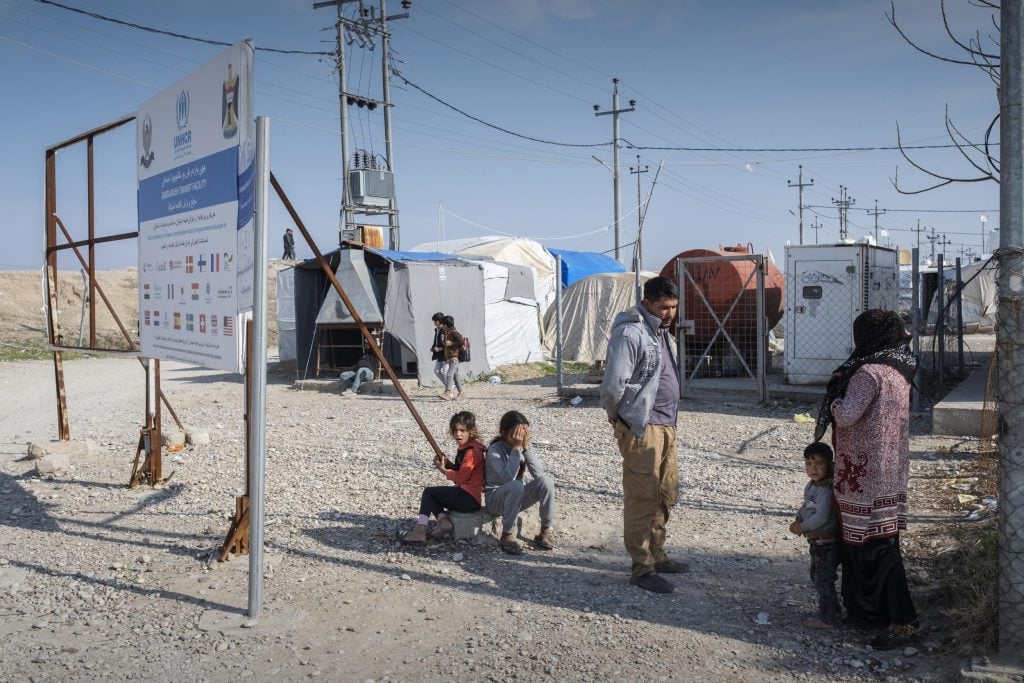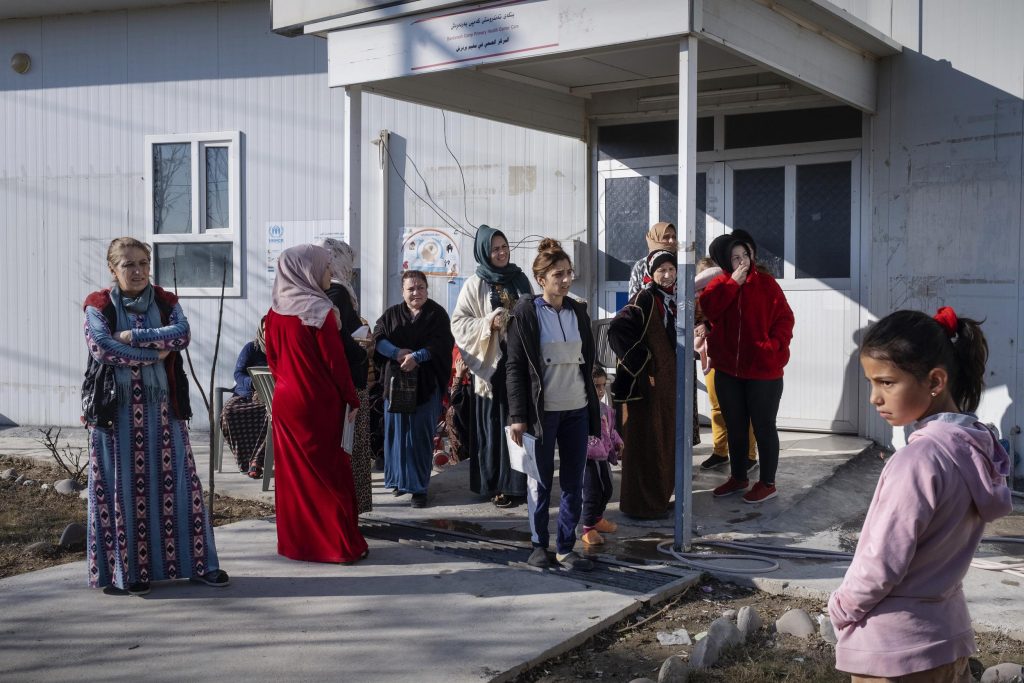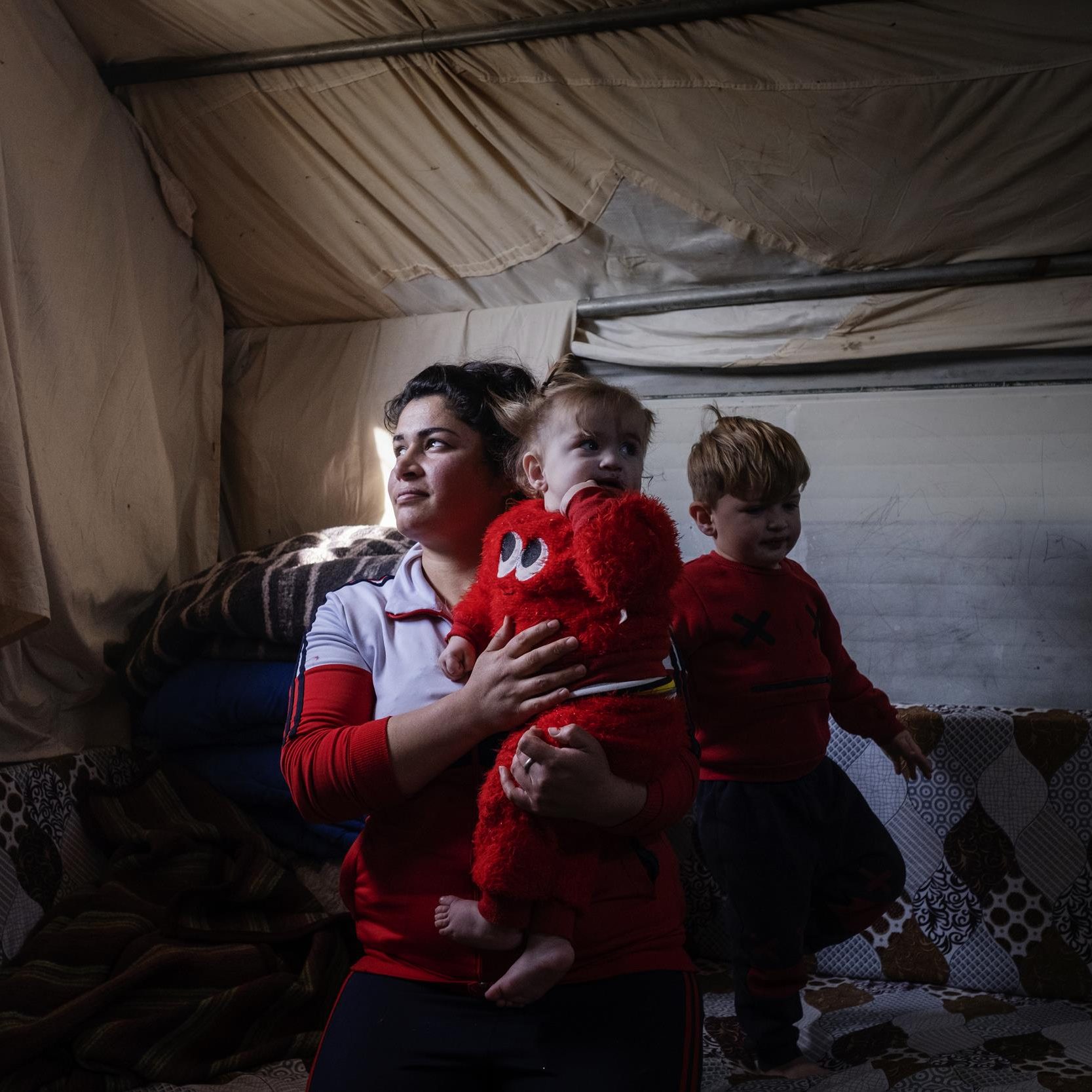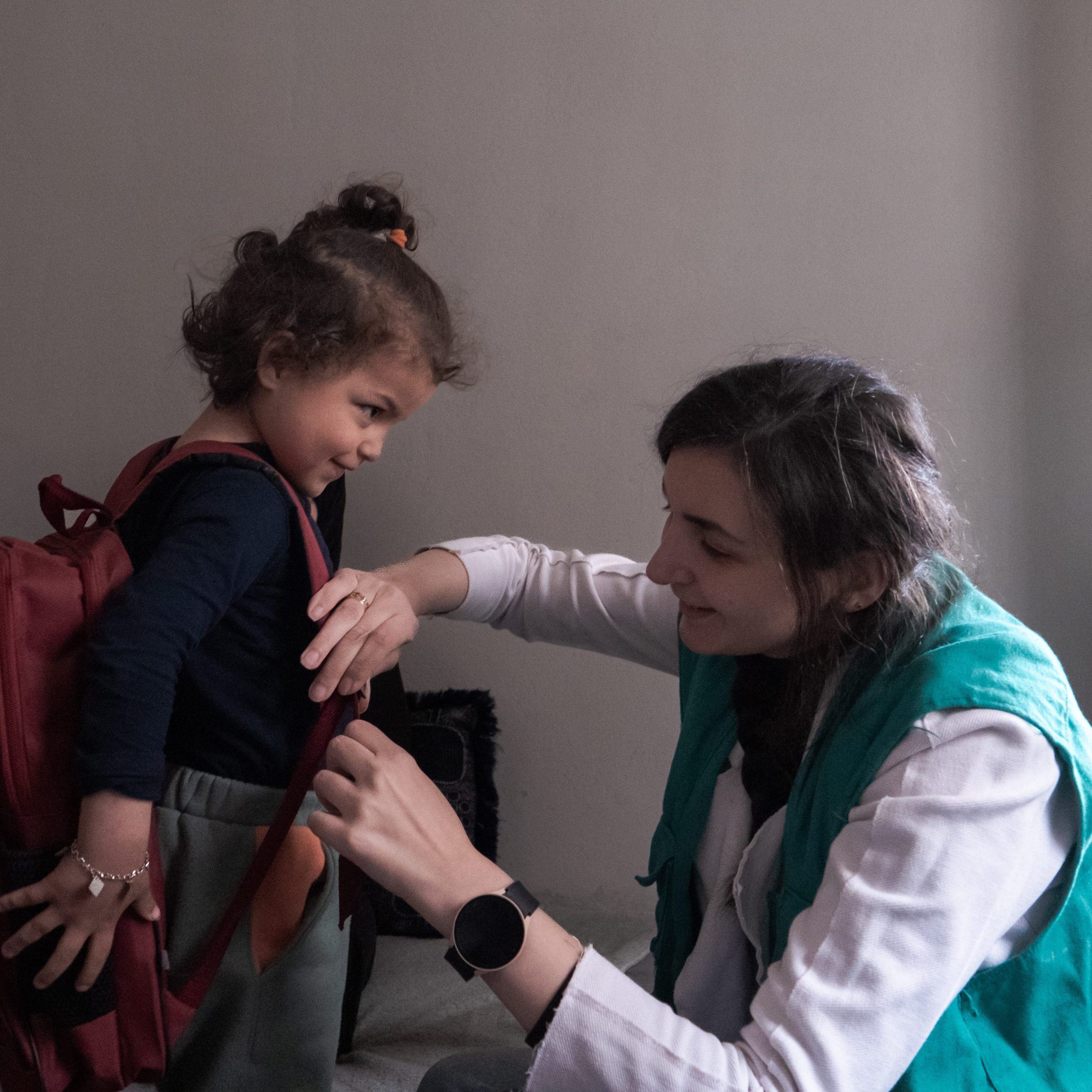Intisar narrows her eyes and covers her face with her hands. Remembering her homeland, Syria, hurts too much. In particular for those like her who would have never gone away. At 28 years old, she's living in the refugee camp of Bardarash, close to Duhok, in Iraq.
Twelve years after the outbreak of the first demonstrations in the streets in Damascus, on March 15, 2011, Syria is still devastated by war and recently stricken by the earthquake that in the night between February 5 and 6, 2023 split the ground in part of Turkey and in the Northern regions of Syria.

Scenes from the refugee camp of Bardarash, where both internal and especially Syrian refugees live after their villages were attacked by ISIS during the occupation, between 2016 and 2018. Photos by Massimo Berruti
Intisar can't stop crying, sitting inside the tent where she lives with her two children, her sister and nephews. «My parents are still in Assake, the city we come from. They are old and they don't want to leave». They cannot imagine to die in a place other than Syria. I always think about them. I always wonder if I will meet them again. Will I ever hug my father again?».
This thought is the most painful one, for her. She arrived in Iraq on foot and by bus, all the way from Assake, together with her husband and their children. From the moment they stopped in the camp of Bardarash, every day her husband looks for daily jobs to earn some money. They want to continue their journey, to go to Europe. In addition to the war, it was ISIS' occupation over some nearby territories that pushed them to flee.
While her children crawl and play beside us, Intisar leads us outside the tent and shows us her favorite place. It's a small vegetable garden, growing in spite of all the pain that surrounds it. Intisar takes my hand and points it to the thriving plants. Finally, she smiles. «I'm happy here. I often sit here and look at the plants growing, feel the sun warming my skin and think about our past life.» A life in the middle of nature, as her family used to have a house in the country, with lands to farm. This little garden seems to be out of tune inside this refugee camp, with its strong and bright colors, and its blooming plants. Intisar is not the only one who has a vegetable garden. Several families have been able to work on a small piece of land inside the camp and grow their own vegetables. A project funded by the Italian Agency for Cooperation and Development (AICS) made it possible: AVSI, which has been working in federal Iraq and KRI since 1991, joined COOPI and CESVI in a consortium to ensure support to the most vulnerable people in a series of geographical areas that had been marked as the ones where assistance was most needed. Outside the camp of Bardarash, the project supports farmers, combining training on sustainable use of water resources for agricultural development with material help.
Iraq has always relied on its own agricultural production. But this sector was heavily affected by ISIS occupation and the water crisis that struck the country.
Many families fled ISIS occupation and, once they came back, they weren't able to restart their production: their livestock had been stolen or killed, their equipment destroyed, their land burned. The support received was essential for small landowners to get back on their feet.

«I often give vegetables to our neighbours around here. In the camp, we are like a big family», Intisar continues. «I have nothing left from my previous life. When we arrived here, all we had was a suit and a change of clothes for our children. I dream of returning to Syria, but I also wonder what kind of future I can give to my children there. And even I, what will I do? It may seem strange, but in the last few months this small garden has kept me occupied, it has given me a real purpose and made me feel alive. It made me feel like the life I used to have before had not all been lost.»

